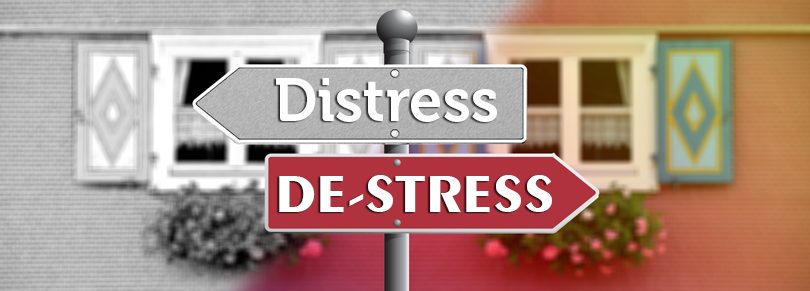We live in days where stress is a guaranteed freebie! Those of us who were born in the 60s and earlier may recall how simple our life was back then. We were happy with simple pleasures and life was so uncomplicated. I remember, while studying for my graduation in the medical college, my parents would send me Rs.400/- per month, out of which the cafeteria bill was Rs.250/- and I could still carry forward Rs.5/- to the next month!
Transport was on the humble bicycle and communication with loved ones back home was through a trunk call which the friendly post office clerk would book for me and I often shared a cup of tea with him as I waited for approximately an hour for those 3 precious minutes of chat with a lot of guaranteed background disturbance!
Antibiotics like Ampicillin, Tetracycline and Septran were both effective and cheap. Unfortunately, they have been archived and are no longer known by young medicos. Doordarshan broadcasted shows from 6pm to 10pm and the entire family huddled together watching all the programmes on the prized black and white television that was in the safe confines of a cabinet with no need of a remote as there was just one channel!
Life has certainly changed now and maybe for the better. Communication has increased by leaps and bounds. Cell phones can connect us to our friends across the globe. Google enables us to access any information at the click of a button and 24 hour television is a relief to couch potatoes and insomniacs! Medicine has progressed so much that some of the once standard investigations have become extinct.
Many of the standard invasive diagnostic procedures that were painful and not so reliable have been replaced by very advanced and sophisticated tests that are very accurate. The list can go on and on. The world has indeed progressed and in effect India too has had an upward swing. But at what cost? The byproduct of all our advances and comforts is STRESS.
The word ‘stress’ does not set off any panic reaction. It is accepted as a part of life. Ciccarelli and Meyer define stressas the term used to describe the physical, emotional, cognitive and behavioral responses to events that are appraised as threatening or challenging.No age group is exempted from stress. Selecting what to wear every day, competition at school, high expectations from parents, peer pressure, rat race at workplace, driving in traffic, taking important decisions, losing a family member or friend, challenges, threats etc., all lead to stress and are called as stressors.
Interestingly there are 2 types of stress:
• Distress: Is caused as a result of unpleasant stressors that are enumerated above.
• Eustress: Is a result of positive events that challenges a person to improve and excel and therefore promotes positive health, well being, self esteem and performance.
Marriage, the birth of a child, a promotion at the workplace can all cause stress but trigger a positive change and make a person adapt to the situation. A certain degree of stress during an examination is also desirable and can promote hard work and better results. Stress can adversely affect the family. It can damage the very fabric of the family.
Doubts and suspicions, multiple arguments, frequent quarrels if not controlled can lead to serious issues like violence, suicide and even murder. A genuine attempt by all concerned should be made to transform harmful distress to positive eustress. This will cause all the conflicting members of the family to be understanding, respectful of the other point of view, forgiving and adaptable and will bring about healing.
When we say ‘healing’ we immediately think of curing of a disease. The World Health Organisation defines health as “the physical, mental, social and spiritual well-being of an individual and not merely the absence of disease”. Healing is also restoration of broken relationships. Stress has a definite adverse effect on health and diseases that are associated with stress have long-standing implications.
The treatment required usually needs to be taken for several years and maybe for the entire lifetime of the individual. This can directly affect the finances of the family negatively and lead to more worry and stress.
Effects of Stress on Health:
- Stress has been scientifically proven to either cause or stimulate a dormant or pre-existing condition to manifest itself as various diseases. Stress can cause hypertension due to release of harmful hormones. This can also lead to clogging of important arteries of the heart and brain. This in turn can cause heart attacks and brain strokes.
- Stress is a potential contributor to Type 2 diabetes mellitus by stimulating the release of various hormones that result in elevated blood glucose levels. Further long-standing diabetes can affect the kidneys, eye sight, nerves and blood vessels.
- An increased secretion of hydrochloric acid in the stomach happens with stress. This can cause problems of indigestion, hyperacidity and peptic ulcers. Chronic peptic ulcers can predispose patients to malignancy.
- Overeating and obesity are commonly seen with stress. This can lead to a plethora of illnesses. Depression and other psychological conditions can be triggered with stress, leading to mood disorders and its dangerous complications.
- Stress is also known to affect the body’s immune system which renders it susceptible to various infections in different body systems.
How to cope with stress:
Simply put, the obvious answer would be to de-stress, and this is easier said than done! Coping strategies are actions that people can take to master, tolerate, reduce or minimize the effects of stressors. These include both behavioral and psychological strategies.All too often the stimulus for such unpleasant situations is something very trivial.
Therefore all such potential causes of distress must be nipped in the bud mutually or with the help of a counselor, close friend or a pastor. The familiar saying ‘a stitch in time saves nine’ is so true. The identification of negative stressors and devising ways and means to overcome them is crucial. Many times a person feels stressed due to imaginary reasons.
People anticipate that something bad will happen in the future and get stressed out. Most of the times these anticipated issues may not happen at all but the adverse effects of stress take their toll on the person’s health. How true is the saying, “Who of you by worrying can add a single hour to his life?”
Some of the simple steps that can be taken are:
- Identifying and rationally addressing the reason for stress. This entails a proper analysis of the issue taking the help and support of the concerned family members so that a collective wisdom is available. The wise counsel of friends and counselors and pastors may be needed.
- Family outings are very helpful. Even going out with the family for long walks or a meal can often de-stress a tough situation.
- Quiet time and meditation is proved to be a great stress buster. Spending time alone for introspection very often has very beneficial effects.
- Religion and spirituality can prove to be a very positive factor for stress. To know that one is part of a cosmos that is created by a caring God can be very comforting, and therapeutic. Being part of a religious group like a church, temple, mosque, etc. can provide social support and a feeling of belonging and support.
In conclusion, in this rapidly developing and competitive society that we are in today we can be sure that stress is here to stay. It is how we deal with it that will keep us away from its harmful sequels. A positive attitude to life, a strong belief in God who is both Creator and Sustainer and finding happiness in helping the less fortunate and marginalized section of society can definitely help to convert distress to eustress.
I will end with a quote from The Message, You’ll do best by filling your minds and meditating on things true, noble, reputable, authentic, compelling, gracious- the best, not the worst; the beautiful, not the ugly; things to praise, not things to curse. Do that, and God who makes everything work together, will work you into his most excellent harmonies.





